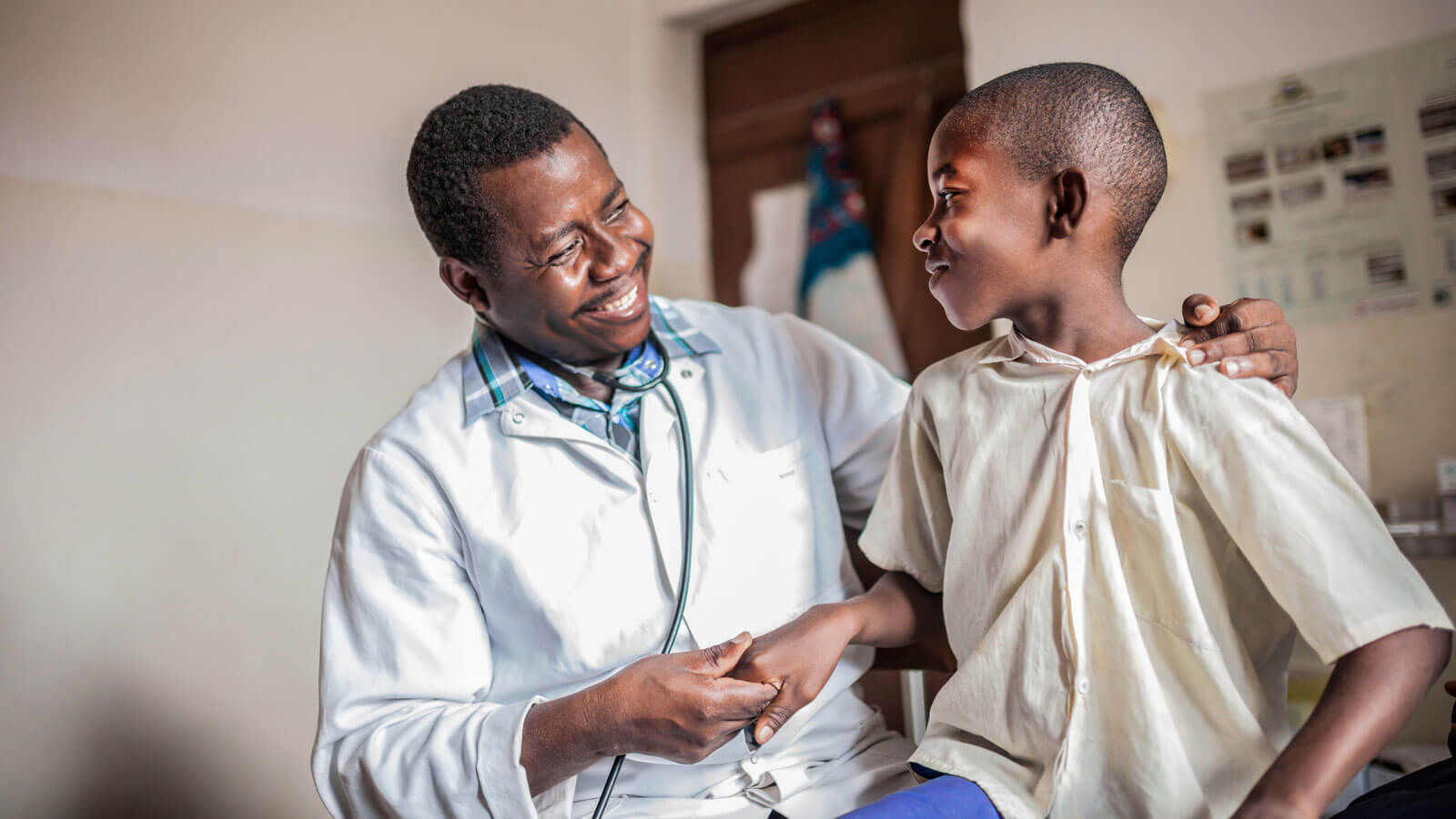An Accord for a Healthier World: Working Together to Help Address Unmet Healthcare Needs in Lower-Income Countries

Currently, regulatory agencies may take up to seven years to approve essential medicines and vaccines in low- and middle-income counties (LMICs) from the time those same treatments were first approved in high-income countries, if they are approved at all.1 The burden remains disproportionately higher in low-income countries.2 Lack of access to quality healthcare is related to healthcare inequities in LMICs and hinders equitable access to safe and effective treatments.2
Those living in LMICs experience 70% of the world’s disease burden yet receive only 15% of global health spending.3,4 As a result, essential medicines and critical treatments are unavailable, unaffordable, inaccessible, or unacceptable for the nearly two billion people living in these countries.4
In 2022, Pfizer launched An Accord for a Healthier World, a groundbreaking initiative focused on greatly reducing health inequities that may exist in lower income countries. Through the Accord, Pfizer offers access to its full portfolio of medicines and vaccines, for which it has global rights, on a not-for-profit basis to 1.2 billion people in 45 lower-income countries.
Shilpa Patil, Vice President Access and An Accord for a Healthier World Medical Lead at Pfizer, says that this was a pivotal and much-needed initiative that demonstrates Pfizer’s commitment to helping improve patients' access to the medicines and vaccines they need. "Your health outcomes shouldn't be affected by where you live or how much money you make. But it's clear that there is not one way, or a single one-size-fits-all approach, to address the health inequity gap and tackle these overlooked needs.”
An expanded commitment
The Accord’s initial offering included Pfizer's patented medicines and vaccines available in the U.S. or the European Union. In early 2023, following conversations with Accord-eligible country governments, the Accord expanded its commitment to include Pfizer’s full portfolio of medicines and vaccines–both current and future products–for which it holds global rights.
This includes patented and off-patent medicines and vaccines that can help to treat or prevent many of the most significant infectious and non-communicable disease threats faced today in lower-income countries, such as chemotherapy and oral cancer treatments, as well as vaccines that can help country governments address current infectious disease priorities.
“We heard from Accord-eligible countries that comprehensive access to a broader portfolio of products under the Accord is needed for meaningful and sustainable transformation,” Patil says.
Addressing unmet healthcare needs
Sustained, equitable access to safe and effective medicines and vaccines is a challenge for lower-income countries around the world. These health inequities can negatively impact an individual's health and wellbeing, which are often caused by complex external factors, including gaps in local health systems and infrastructures, substandard or falsified treatments, and affordability.5
Currently, cancer-related mortality rates in lower-income countries are significantly higher than in other parts of the world.6 In fact, 11% of cancer deaths could be avoided in lower-income countries with improved access to treatment. While on the rise globally, cancer rates are significantly higher in LMICs.6
Hospital infections and antimicrobial resistance (AMR) also pose significant threats to clinical and public health systems. A 2022 study from The Lancet indicated that bacterial AMR is a health problem with a magnitude as large as HIV and malaria and is the highest burden in low resource settings.7 Additional research shows that drug-resistant infections could cause up to 10 million deaths each year by 2050. This may further exacerbate existing morbidity and mortality rates associated with hospital-acquired infections, which are two to 20 times higher in low- and middle-income countries.8
The Accord’s expanded portfolio includes chemotherapy and cancer treatments that have the potential to treat one million new cancer cases in Accord-eligible countries each year.9 The portfolio also includes a wide range of antibiotics that can help alleviate the rising morbidity, mortality, and costs associated with AMR. Around 1.5 million deaths occur each year in these countries as a result of bacterial infections in hospitals and community health clinics.10,11
“Quality healthcare is a basic human right,” Patil says. “The right treatment at the right time, in the hands of patients can save lives.”
The power of collaboration
Alongside governments and multi-sector global health organizations, the Accord aims to explore solutions that can help address systemic barriers to healthcare access, including strengthening supply chain logistics, advancing medical education and professional development, and exploring more efficient regulatory pathways, as permissible under applicable laws. The Accord continues to prioritize strategic collaborations that can potentially help ensure treatments reach patients in need.
“We remain committed to collaborating with governments and multisector global health organizations to co-create scalable solutions, which aim to help address systemic barriers to better health,” says Patil. “We are focused on working together to find faster, more efficient pathways for the supply of medicines and vaccines, as well as strengthening the resources, capabilities, and platforms that help enable quick yet sustainable access to those medicines.” says Patil.
Seven countries have now signed agreements and work is underway with local governments, helping enable a seamless supply of selected products, including cancer treatments, anti-infectives, vaccines, and other therapies. Recognizing that product supply is only one step to reaching those in need, Pfizer experts are seeking to understand and explore ways to support unmet healthcare needs in Accord-eligible countries.
Collective success requires collaboration, leveraging the experience and expertise of many to implement the most effective access solutions. No one government, organization, or company can close the health equity gap alone.